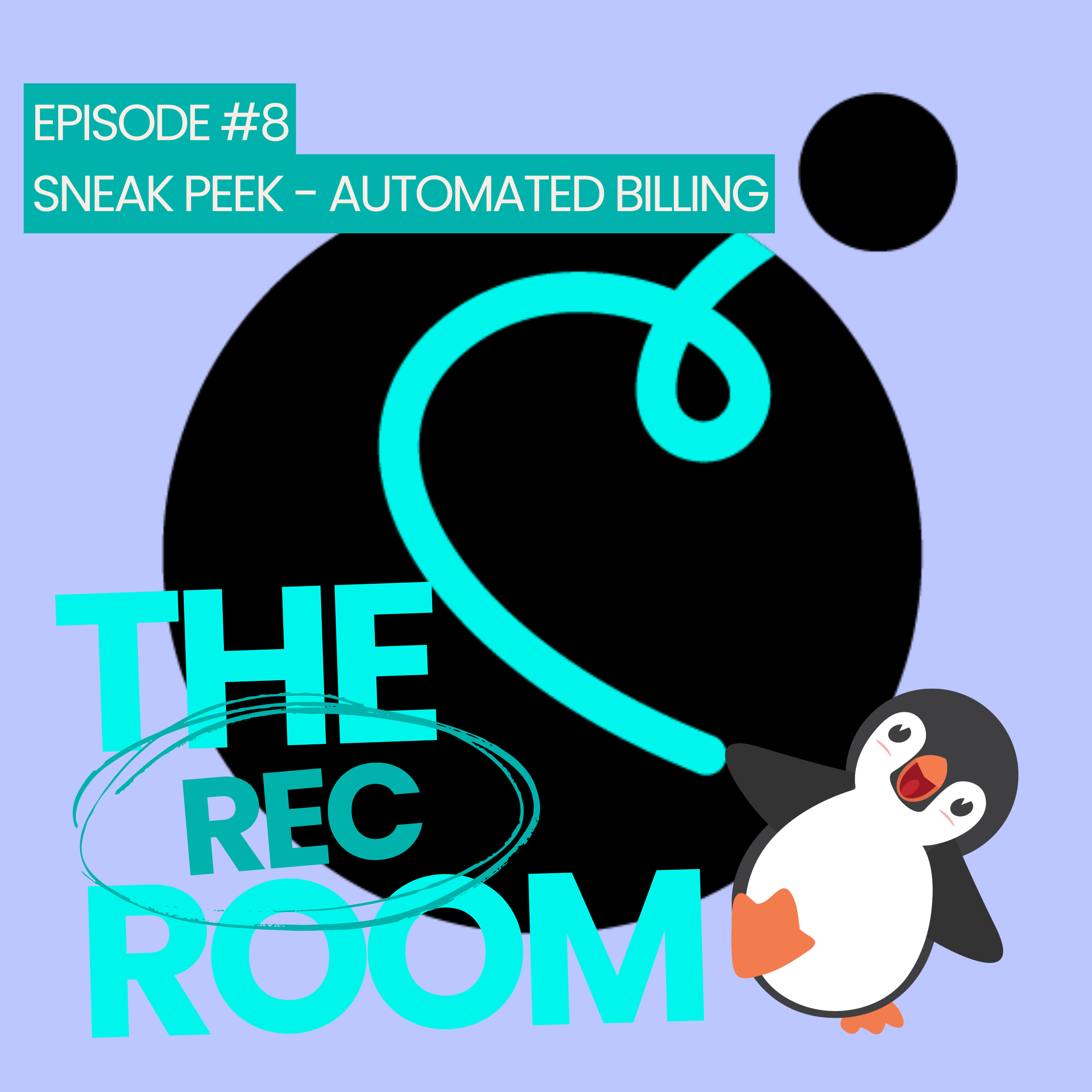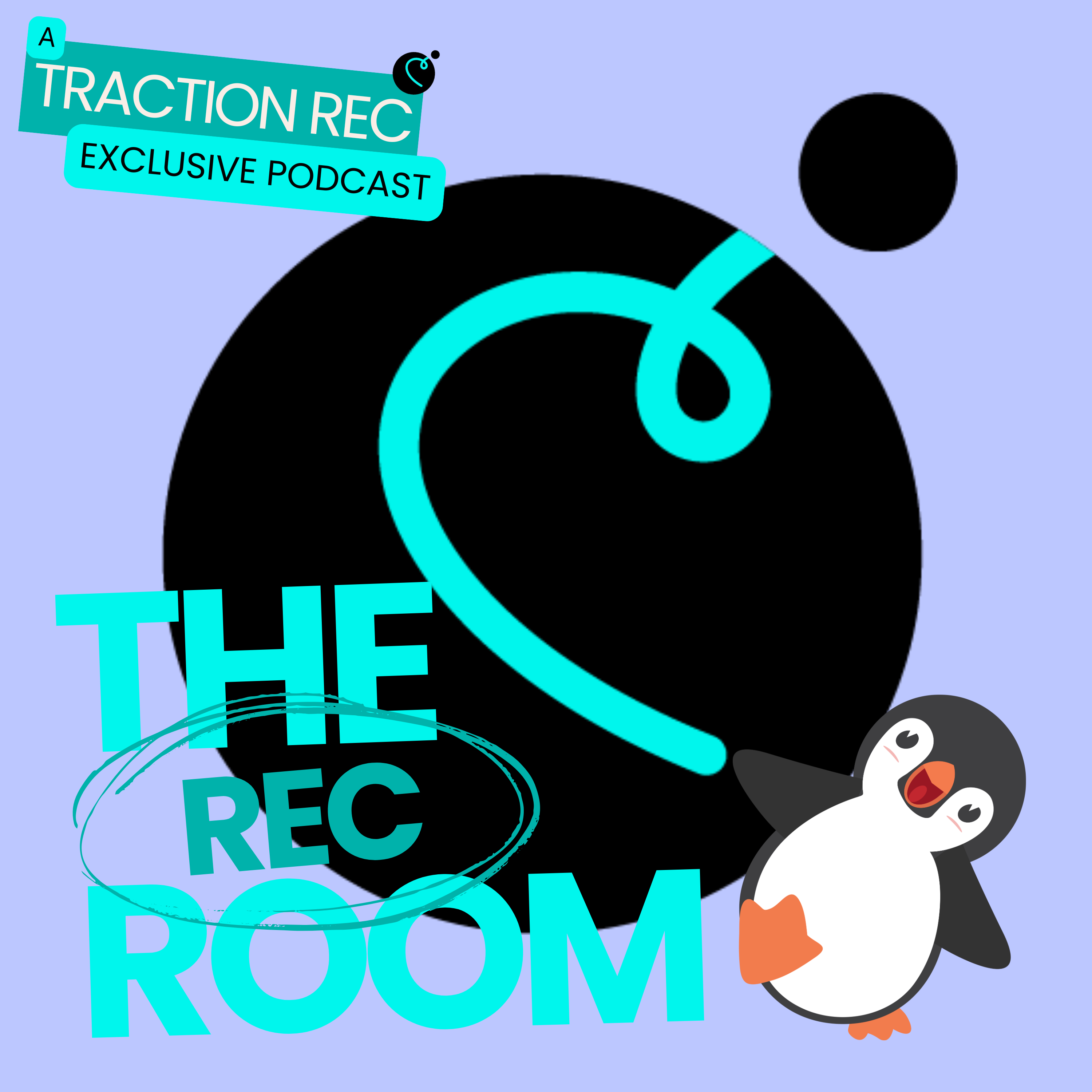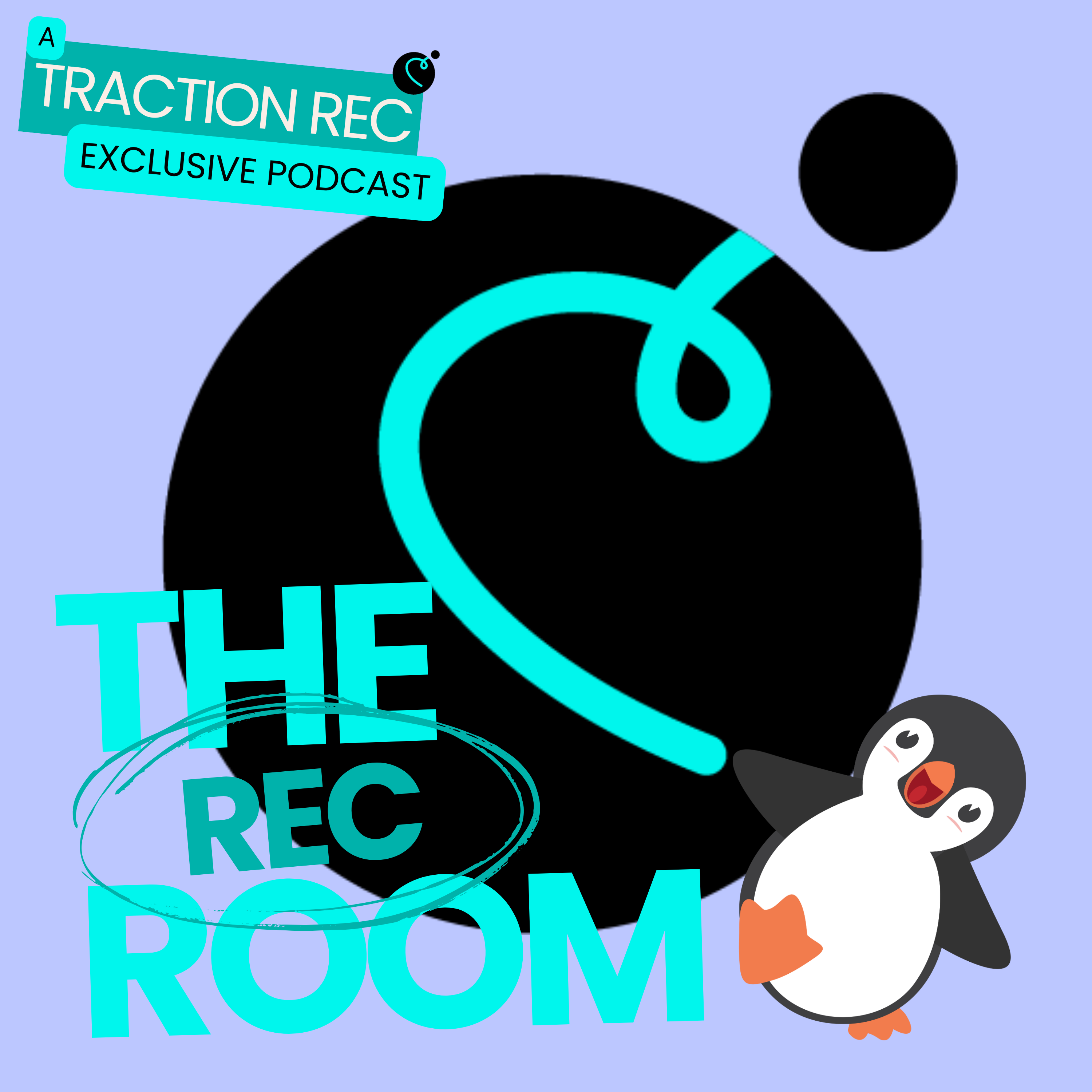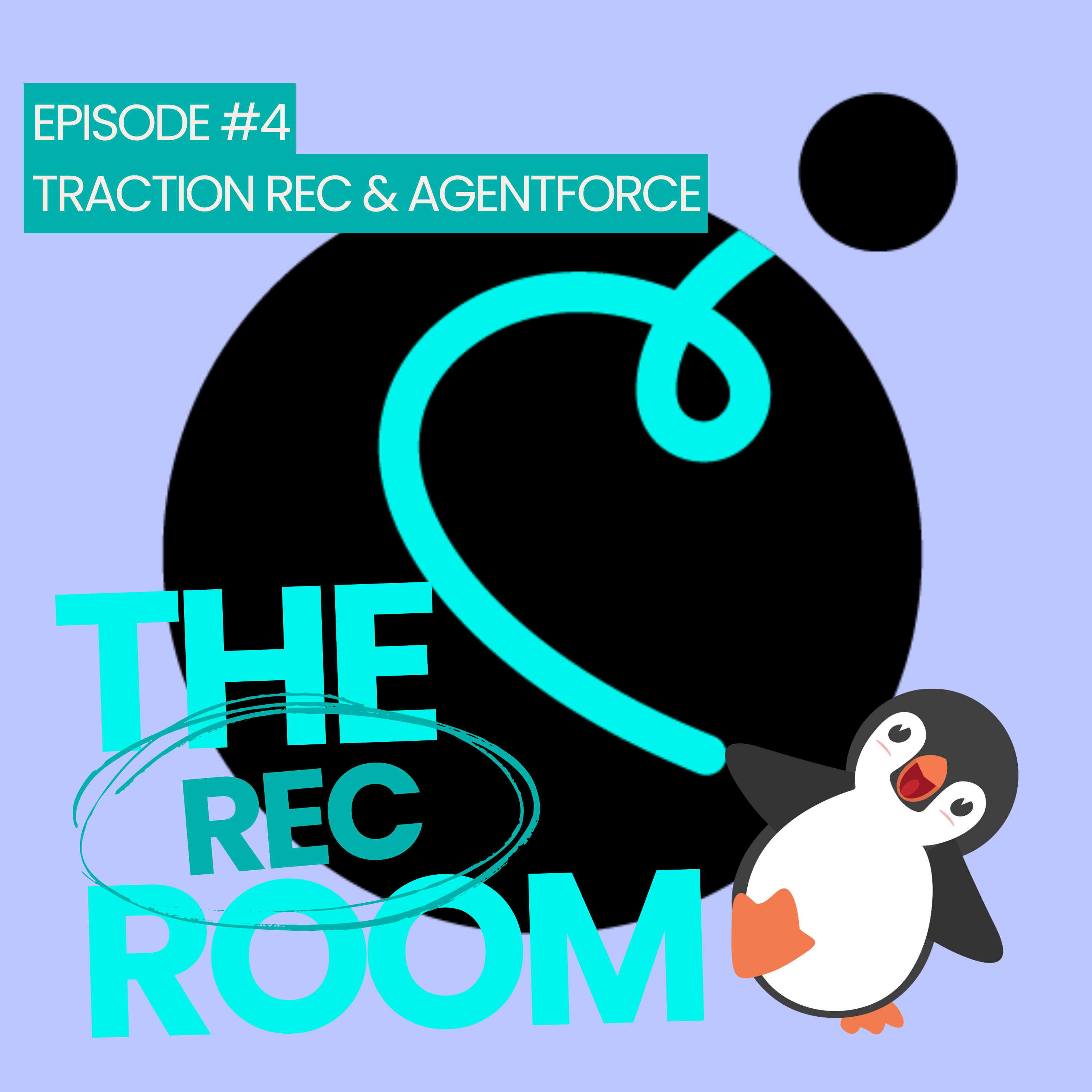Episode Transcript
[00:00:00] Speaker A: Welcome back to the rec room, the AI podcast from Traction Rack, bringing you all the feature updates and news from our amazing team. I'm Jordan Williams.
[00:00:08] Speaker B: And I'm Maya Patel. So excited to be here, Jordan.
[00:00:10] Speaker A: Great to have you, Maya. Today, folks, we've got a sneak peek episode for you. We're diving into something pretty big. Automated billing.
[00:00:17] Speaker B: Ooh. Yes. This is a powerful new feature coming from Traction Rack. And honestly, it's designed to make life a whole lot easier.
[00:00:26] Speaker A: Totally. So our mission today is to really unpack this. What is automated billing? How does it actually work?
[00:00:33] Speaker B: And crucially, why should you care? We're talking streamlining operations, helping out with that all important cash flow.
[00:00:39] Speaker A: Exactly. Think of this as your inside look, your shortcut to understanding what this means for organizations using Traction Rack.
[00:00:46] Speaker B: Let's get into it.
[00:00:47] Speaker A: Okay, so automated billing. Maya, maybe before we jump into the solution, let's talk about the before. Picture the pain points.
[00:00:54] Speaker B: Oh, yeah. Anyone who's dealt with billing knows the drill, right? Especially in community centers, parks and rec, nonprofits.
[00:01:01] Speaker A: Right.
Managing memberships, program fees, rentals. Yeah, it can be a ton of manual work.
[00:01:08] Speaker B: A ton. Chasing payments, dealing with spreadsheets.
Just the sheer hours spent making sure revenue comes in. It's essential, but wow, can it be draining.
[00:01:19] Speaker A: And that's where this comes in. The goal here is simplifying and streamlining all that. Supporting healthier cash flow, too.
[00:01:26] Speaker B: And the key phrase I keep seeing is making the process hands off, consistent and effortless. That's the promise.
[00:01:32] Speaker A: Hands off. Sounds pretty good to me.
[00:01:33] Speaker B: Yeah.
[00:01:34] Speaker A: So how does automated billing tackle that reality? What's the big shift here?
[00:01:38] Speaker B: Well, what's really interesting, Jordan, is it's not just about making billing faster. It's more about taking the manual steps.
[00:01:44] Speaker A: Out of the equation, eliminating the work, not just speeding it up.
[00:01:47] Speaker B: Exactly. Think about it. For these organizations, billing. Billing is the lifeblood, right? Collecting revenue for programs, memberships, whatever it is, it's fundamental.
[00:01:55] Speaker A: Absolutely.
[00:01:55] Speaker B: So this directly addresses that core operational need, but it's also about, like, organizational resilience.
[00:02:02] Speaker A: Resilience? How so?
[00:02:03] Speaker B: Well, when your cash flow is more predictable because the billing is automated and consistent, and your team isn't spending all their energy chasing down payments or fixing manual entry errors, you free up bandwidth, not just hours, but, you know, mental energy.
Less stress, less burnout potential.
[00:02:20] Speaker A: And probably happier customers, too. If the billing is smoother, definitely it.
[00:02:24] Speaker B: Lets teams shift from being reactive, just trying to keep up to being more proactive. Maybe focus on growth or new programs.
[00:02:32] Speaker A: That makes a lot of sense. Okay, so the promise of hands off is huge. Let's peel back the layers. Then how does it actually work? What makes it set it and forget it.
[00:02:42] Speaker B: Okay, so the core functionality.
This is where it gets pretty neat. The system can run billing in two main ways, scheduled or manually.
[00:02:51] Speaker A: Okay, so you still have the option to kick it off yourself if needed.
[00:02:54] Speaker B: Exactly. You have that control. But the real game changer is the scheduled part. The set it and forget it.
[00:02:59] Speaker A: Right.
[00:02:59] Speaker B: You can literally define the specific day and the specific time you want the billing to run automatically.
[00:03:05] Speaker A: Wow.
So like set it for the first of the month at 9am and just let it go?
[00:03:10] Speaker B: Pretty much. Imagine setting that up once for say, a whole season of programs or your annual membership renewals. You configure it and then the system just handles it.
[00:03:20] Speaker A: Okay, that alone sounds like it would save a massive amount of time and frankly worry totally.
[00:03:26] Speaker B: No more remembering to manually start those huge payment runs every single time.
[00:03:30] Speaker A: But what happens if that scheduled day falls on a weekend or maybe a holiday? That could cause issues. Right?
[00:03:38] Speaker B: Good question. And they've thought about that. It's pretty smart actually. There's an option you can configure to skip weekends or any other specific days you define as non billing.
[00:03:47] Speaker A: Ah, okay. So you can tell it don't run billing on Saturday, Sundays or you know, Christmas Day.
[00:03:52] Speaker B: Exactly. And if a payment scheduled date does land on one of those non billable days. Yeah, the system doesn't just skip it or fail, it automatically bumps it to the next available billable day.
[00:04:03] Speaker A: Well, that's clever. So you still get the payment just on the next business day essentially.
[00:04:07] Speaker B: Right. So you avoid those awkward holiday charges, customers are happier, and your revenue still flows in predictably even if the office is closed.
[00:04:15] Speaker A: That avoids a lot of potential headaches for for sure.
[00:04:18] Speaker B: And here's another big efficiency boost. On each scheduled billing day, the system is designed to process all the payments that are due across all your different billing groups.
[00:04:28] Speaker A: All at once.
[00:04:29] Speaker B: All at once. Which is a big deal. Previously you might have had limitations, maybe only able to run one type of billing at a time. This is way more comprehensive.
[00:04:38] Speaker A: Okay. That level of automation, plus the smart scheduling around non billable days, that seems like it covers the smooth sailing really well. But you know, billing isn't always smooth sailing. What about the tricky stuff like declined payments? That's always a major headache.
[00:04:53] Speaker B: Ah, yes, the dreaded declines. That's a huge time sink for so many teams. Right? Chasing those down, trying to recover the revenue.
[00:05:01] Speaker A: Definitely. So how does automated billing help with that part does it just automate the initial attempt?
[00:05:05] Speaker B: It goes further than that. This is where the system gets smarter about revenue recovery.
You can now define retry attempts.
[00:05:13] Speaker A: Retry attempts?
[00:05:14] Speaker B: Yeah, you can set this up for what are called global billing groups. Think of these like categories or buckets for your different types of charges.
[00:05:24] Speaker A: Okay, so maybe one group for monthly memberships, another for summer camp registration. Something like that.
[00:05:29] Speaker B: Exactly. You can customize these groups, and for each group, you can specify how many times the system should automatically retry a declined payment. And importantly, how many days it should wait between attempts.
[00:05:40] Speaker A: Ooh, okay, so you get flexibility there.
[00:05:42] Speaker B: Tons of flexibility. Maybe for a high value annual membership, you set it to retry, say three times. Waiting maybe five days between each try. Gives the member time to update their card or whatever.
[00:05:53] Speaker A: Right, but maybe for a smaller fee, you only retry once or twice sooner.
[00:05:56] Speaker B: Precisely. You tailor the retry strategy based on the payment type and value.
This directly helps recover funds that might otherwise get lost or need a staff member to manually chase them down.
[00:06:07] Speaker A: So it's automating the follow up too, in a smart way. That's really significant.
[00:06:11] Speaker B: It really is. It shifts that burden from your team to the system doing the intelligent RE engagement.
[00:06:16] Speaker A: Okay, so it handles declines more gracefully. What about other kinds of errors? Like sometimes things just go wrong during a big batch process. A system glitch, a data issue.
[00:06:27] Speaker B: Yeah, that can happen. And in the past, sometimes one little error in a big billing run could, like, stop the whole thing. It'll be a disaster, a total nightmare. Right. This is another area with some really crucial improvements. Enhanced error management.
[00:06:42] Speaker A: Okay, tell me more. How does it handle errors now?
[00:06:46] Speaker B: So if an error does occur during an automated billing run, the system is designed to be much more targeted. It will now isolate only the specific billing schedules that are actually affected by that error.
[00:06:57] Speaker A: Isolate them? Meaning?
[00:06:59] Speaker B: Meaning it doesn't stop the entire billing process for everyone else. Think of it like one car having engine trouble in a long line of traffic.
Instead of closing the whole highway, the system just flags that one car, pulls it to the side, and lets everyone else continue on their way.
[00:07:13] Speaker A: Ah, I see. So the rest of the billing run completes successfully.
[00:07:16] Speaker B: Exactly. The system flags those problem records, puts just them on hold, and generates an error report so you know which ones need attention.
[00:07:25] Speaker A: And the team can deal with those specific errors later.
[00:07:27] Speaker B: Right. After the main run is finished and before the next billing day, your team can go in, review that error report, figure out what went wrong with those few records, and fix them.
[00:07:37] Speaker A: Wow, that is a huge difference. Operationally preventing a minor hiccup from derailing the entire cash flow cycle.
[00:07:45] Speaker B: It's a massive game changer for stability and honestly, for team sanity.
[00:07:50] Speaker A: Fewer fire drills, definitely less stressful. And you mentioned this improved error handling applies specifically in pre chain and accounting. What does that mean?
[00:08:00] Speaker B: Good clarification. Yeah, those are sort of the foundational stages in the system where transactions are first processed and validated pre chain and then officially recorded in your financial books accounting. So this smarter error handling is happening right at those critical points, ensuring the integrity of your core financial data. It helps keep your books balanced and accurate, even if there are occasional bumps in the road during processing.
[00:08:22] Speaker A: That makes perfect sense. Accuracy is key there. Okay, so we've covered scheduling, retries, error handling.
Let's zoom out a bit. Maya, what does all this mean? Big picture. For the organizations using TractionReck, for the listeners tuning in.
[00:08:37] Speaker B: Well, tying it all together, Jordan, automated billing really represents a significant leap forward. We're talking major gains in operational efficiency.
[00:08:45] Speaker A: Less manual work.
[00:08:46] Speaker B: Like we said, way less manual work, which as we know, eats up so much time and resources. It also means more consistent, predictable cash flow. That's huge for financial stability, thanks to.
[00:08:56] Speaker A: The scheduling and the smart retries.
[00:08:58] Speaker B: And then there's the smarter, less disruptive handling of declines and errors. Less stress, more accuracy, fewer fires to put out.
[00:09:05] Speaker A: So basically it lets the system handle the repetitive but critical stuff.
[00:09:10] Speaker B: Exactly. Freeing up your staff, your people to focus on more strategic work, more human centric things like member engagement, program quality, community outreach. The stuff that really drives the mission.
[00:09:23] Speaker A: That's the goal, right? Use technology to enable people to do higher value work.
[00:09:28] Speaker B: Absolutely. And the good news is this feature is rolling out soon. It'll be available for all TractionRec customers who are on version 60 and above.
[00:09:36] Speaker A: Excellent. Good heads up for everyone listening. And it sounds like TractionRec wants to keep the conversation going too.
[00:09:41] Speaker B: Yeah, definitely. They're encouraging folks to jump into their customer slack channel or connect on LinkedIn to talk about automated billing, how they plan to use it, share ideas.
[00:09:51] Speaker A: That's great. It really shows that commitment to collaboration, working with the community.
[00:09:55] Speaker B: It fosters that partnership which is so important.
[00:09:57] Speaker A: Okay. Wow, what a deep dive. We've covered a lot of ground here.
[00:10:01] Speaker B: We really have.
[00:10:02] Speaker A: We've seen how automated billing aims to, well, genuinely simplify and streamline operations.
That whole hands off, consistent, effortless goal seems much clearer now.
[00:10:13] Speaker B: Yeah, with the scheduled runs, the customizable retries for declines, the really intelligent error management, it's more than just speeding things up. It feels like a smarter way to manage finances.
[00:10:26] Speaker A: Definitely supports that healthier cash flow we.
[00:10:28] Speaker B: Talked about, for sure. And automating such a critical process, one that's often so labor intensive, it could really shift how organizations allocate their resources.
[00:10:40] Speaker A: Which leads to an interesting thought, doesn't it?
[00:10:42] Speaker B: It does. It makes you wonder, beyond the obvious financial benefits and the time saved, what else does this unlock?
[00:10:49] Speaker A: Right? If your team isn't constantly bogged down in the nitty gritty of billing.
[00:10:53] Speaker B: Yeah, how does that freed up time and energy get reinvested? Could it mean finally launching that new program you've been dreaming about?
[00:11:00] Speaker A: Or maybe enhancing member services in some way? Spending more time on community engagement?
[00:11:04] Speaker B: Exactly. What strategic initiatives could actually get off the ground when the billing process is humming along smoothly in the background?
[00:11:11] Speaker A: That's a fantastic question to leave everyone with thinking beyond the immediate task automation to the potential for real growth and impact.
[00:11:18] Speaker B: It's exciting to think about the possibilities.
[00:11:20] Speaker A: It really is.
Well, we hope this deep dive into automated billing has given all of you listening some valuable insights and maybe sparked some ideas for how automation can transform your own operations.
[00:11:31] Speaker B: We hope so. Thanks for tuning in.
[00:11:33] Speaker A: Thanks for joining us on the rec room and keep exploring.





